Who will help the Gurkhas now? Thousands of Nepalese came to Afghanistan to work for Westerners and were forgotten there
When the Taliban captured Kabul on August 15, 2021, a group of thirteen men on the fifth floor of the Roshan Plaza hotel in the city center hatched a daring plan. They decided that if the hotel were to be searched, they would tell the Taliban that they were tourists from Nepal. The 13 men were lucky – the Taliban never came to the hotel, even in the days following the overthrow of the Western-backed government. And so they continued to sit there, as they had been sitting there for months: four of them to a room, effectively trapped. The hotel’s security guards had been instructed not to let them out on the street. They weren’t even allowed to show their faces in the lobby. In fact, these men from Nepal were not tourists. They had come to Afghanistan in the middle of the war because they had been promised jobs as guards at the German Embassy.
The men on the fifth floor were Gurkhas, a collective term for Nepali soldiers. When the English tried to invade Nepal in the 19th century, the Gurkhas resisted so relentlessly that the British established their own Gurkha regiments after the war. They recruited young men in Nepal’s mountain villages and sent them off to fight wars that had nothing to do with them.
Nearly half a million Gurkhas fought in World War I and II. They fought and drowned in the trenches of France, which were dug for larger men. They helped liberate northern Italy from the Nazis, and the British Army awarded them medals of valour for their efforts. At home, however, they did not receive so much as a pension.
It seems to be the fate of these quiet soldiers that their contributions are forgotten. In France, in northern Italy, and now in Afghanistan.
In Afghanistan, Gurkhas served as guards at a number of Western embassies and other facilities. According to some estimates, more than 35,000 Nepalese have worked as guards in Afghanistan over the past 20 years, but the number is likely to be higher. Many of them were victims of human trafficking. When Kabul fell on August 15, some were simply left behind. Here, they share their stories for the very first time.
Sweating towards a new life
To understand the Gurkhas better, it helps to go into the hills where they become Gurkhas. It is early morning in Pokhara, Nepal’s second-largest city, and upon the hill, the morning haze is mixed with the panting of young men. They are doing interval runs, sprinting up the slope sometimes as much as ten times in succession. Today, around 30 young men are charging upward, perhaps towards a better life.
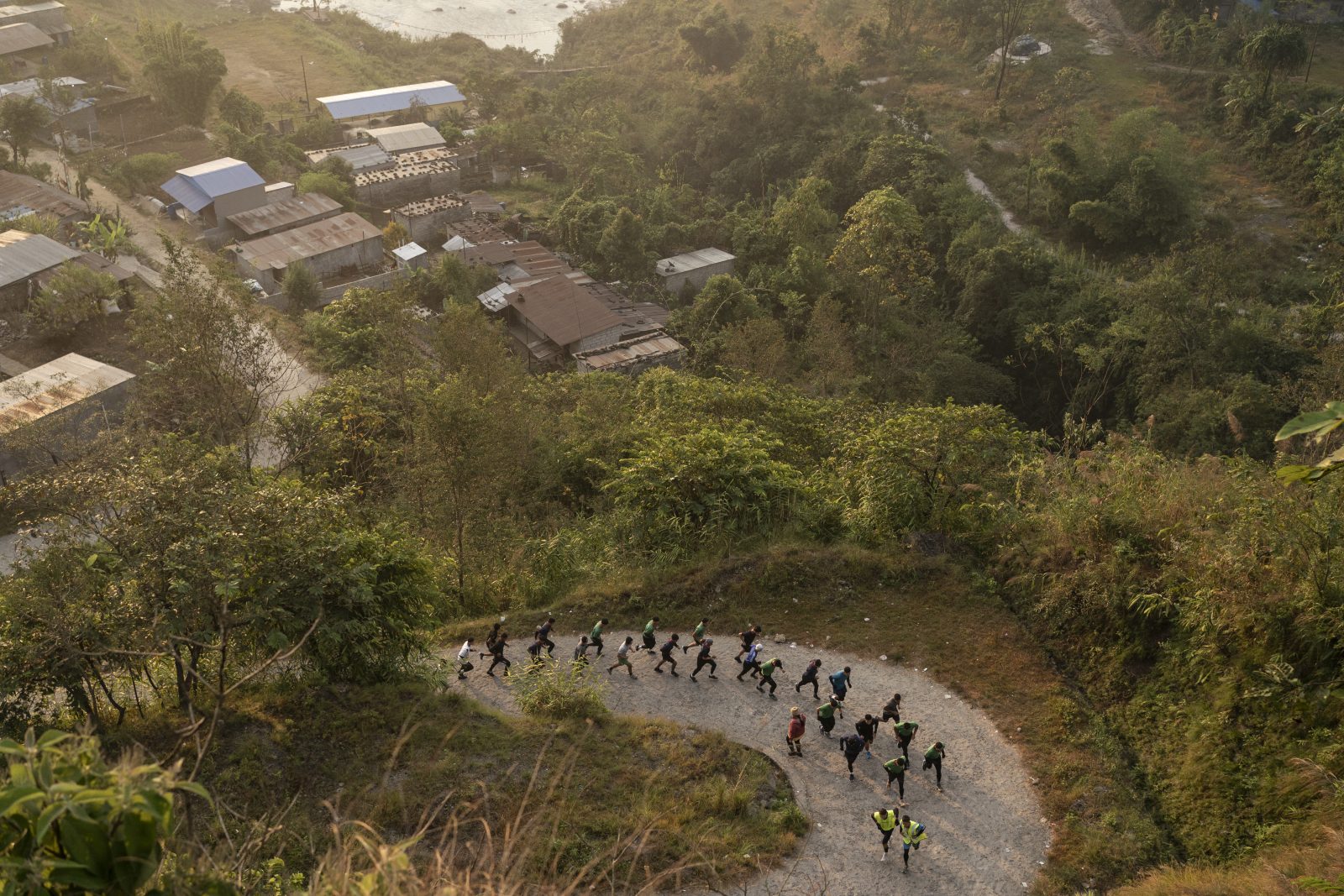
A morning workout on the hill: Young men running, perhaps towards a better life.
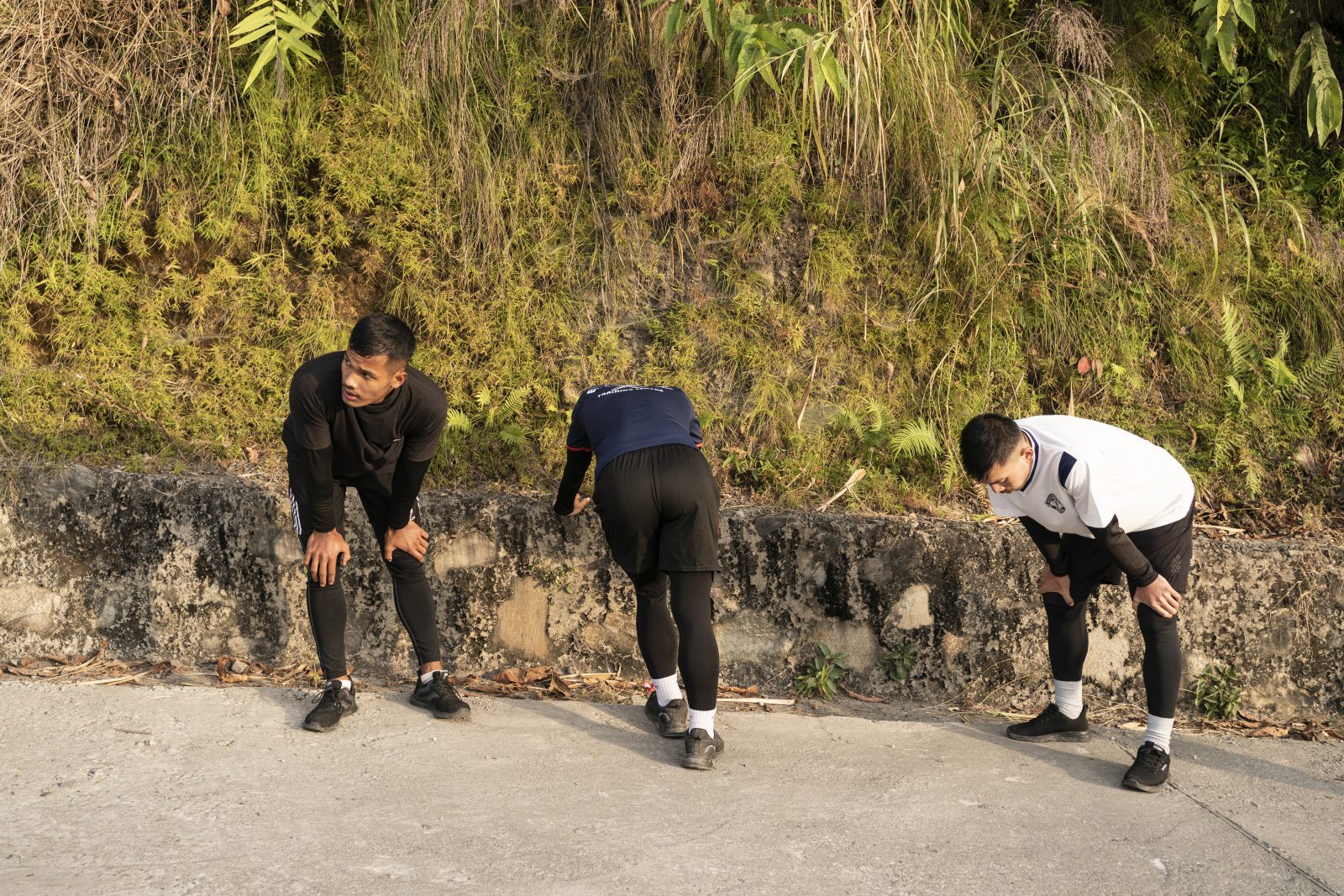
Sweating and panting, with the goal of one day becoming a Gurkha.
Ajit Fewali Magar is 20 years old, and for him, the selection process will take place in just a few days. Why does he want to become a Gurkha? “I want a rewarding and long career. If necessary, I would like to prove my blood and courage on the battlefield. And I want to improve my family’s financial circumstances.” Magar has memorized these sentences in English. He looks as though someone has screwed a boy’s head onto a broad man’s shoulders.
Magar is training at one of the private Gurkha training centres in Pokhara. There, day after day for a period of six months, as many as 300 young men at a time rehearse the tasks that will one day be asked of them during the recruitment process: pull-ups, exercises involving running while carrying weights as well as ordinary endurance running, but also English and mathematics.
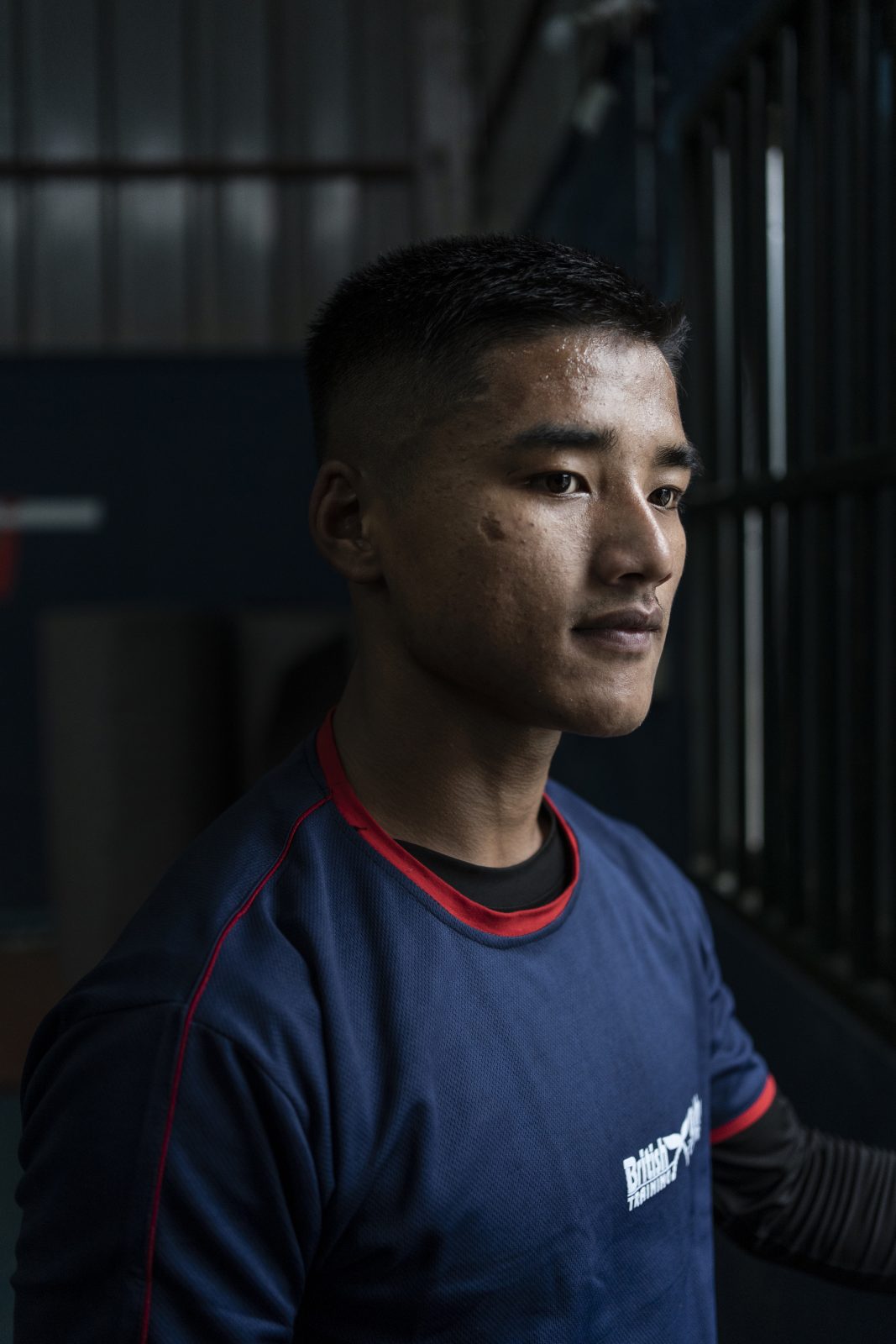
Ajit Fewali Magar applied to join the Singapore Police Force.
The British army comes to Pokhara to recruit new candidates once a year. Several thousand men apply but only 200 are accepted. Those who have served receive a residence permit in Great Britain. Magar is, instead, trying out for the Singapore Police Force, the city-state’s national law enforcement agency. This is his only chance: afterwards, he will be too old to apply. The Singapore Police Force also recruits Gurkhas as does the Indian army. Those not chosen by the British might make it to the Singaporeans. The Indians take the most recruits but pay less. Only recently have the young men also applied to join the Nepalese security forces.
The instructor is not satisfied with Magar’s English answer. Most applicants fall short during the interview with the recruiting officer, he says. Many of the young people at the training centre say they want to become Gurkhas in order to earn money. They come from peasant families and soldier families. Many have a father or an uncle who previously served as a Gurkha. The instructor wants them to talk about courage and loyalty instead. The motto of the Gurkhas, after all, is that it is better to die than to be a coward.
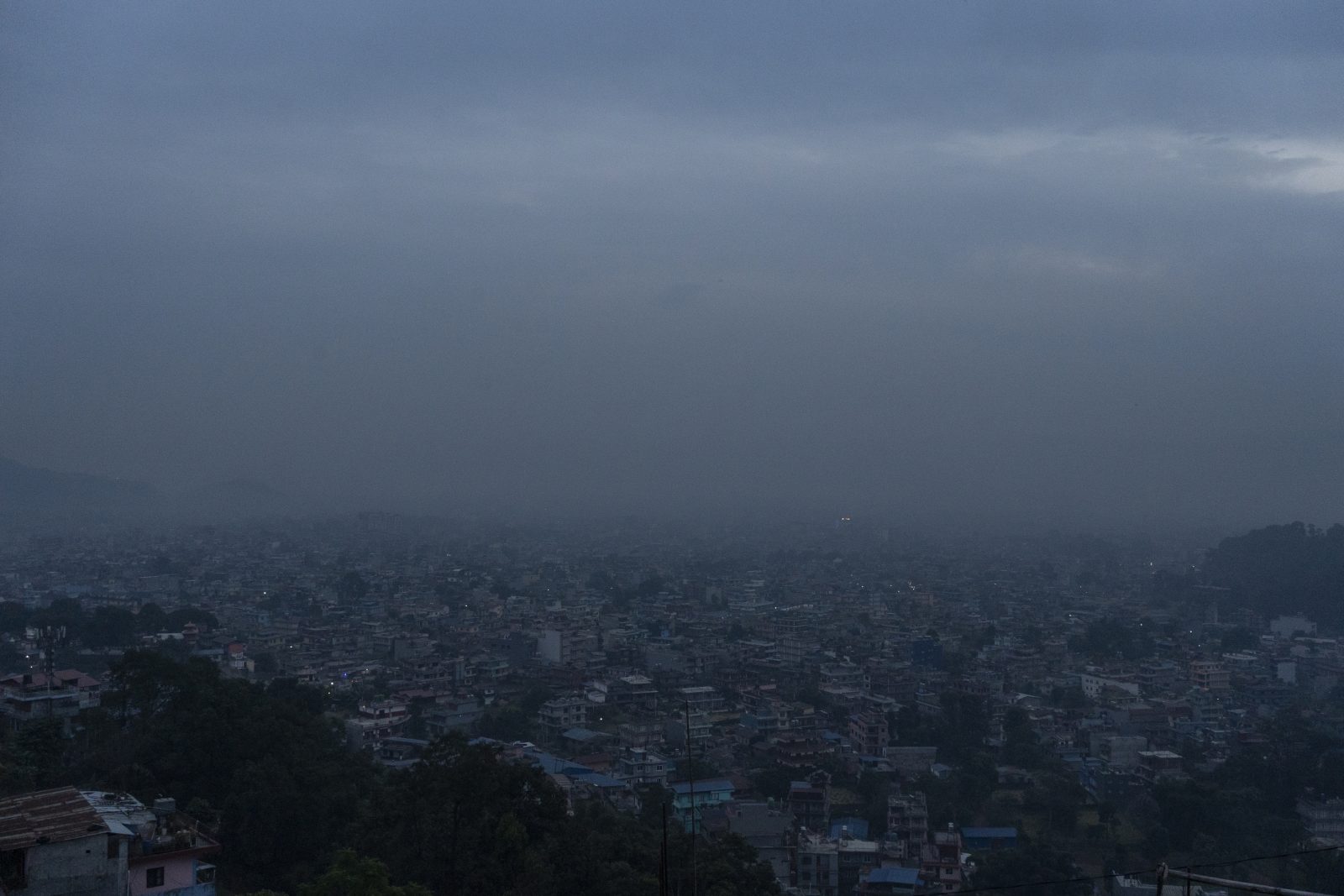
Pokhara is Nepal’s second-largest city. This is where Gurkhas are recruited.
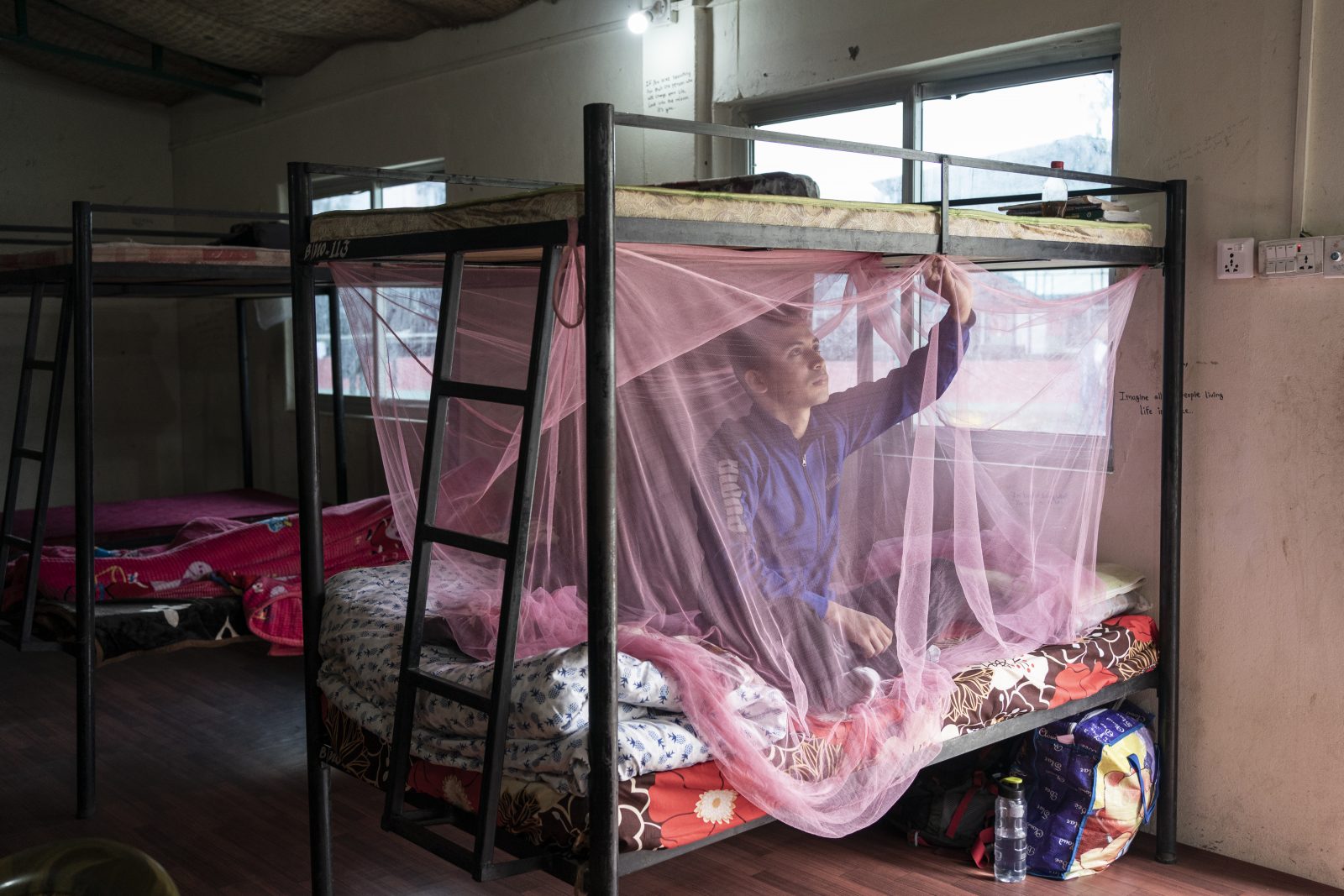
Aspiring Gurkhas live in simple rooms. Here, Akash Poudel shows off his bed.
Magar’s father is a farmer from a village in the Gurkha district, which once gave its name to the Gurkha forces. Nepal’s first king set out from Gurkha, ultimately unifying the territory with his fearless fighters. “I helped on the farm, four to five hours a day. That was my training,” Magar says. One of his tasks, he adds, was to carry heavy baskets up and down the hills. This is the Gurkha legend, that the sons of Nepal’s mountain farmers become the toughest and bravest soldiers.
You can see young men running and sweating in many places around Pokhara. The city is home to numerous training centres. Magar is paying roughly $490 for six months of preparation, including room and board. His family, which lives many hours away by bus, had to scrape together the money. Trying to become a Gurkha means the entire family’s hopes and worries rest on Magar’s broad shoulders from a very early date.
There are thousands of young men like Magar who become Gurkhas every year. And each year, after their service is done, thousands leave the British, Indian, and Nepalese armies, knowing nothing beyond the life of being a soldier. In the end, their families’ hopes and worries end up driving many of these veterans to Afghanistan.
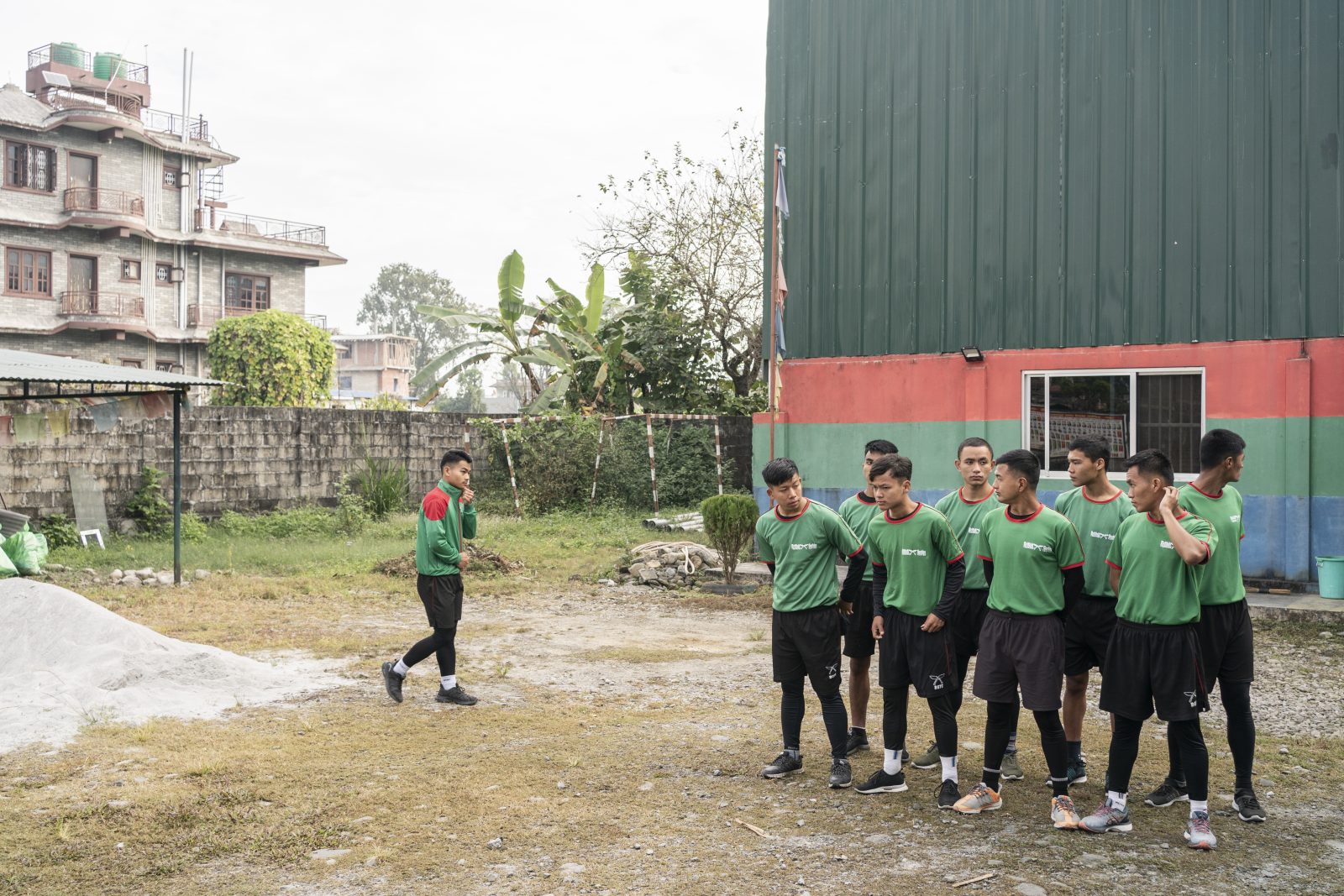
Training starts early in the morning. The young men here are getting ready for their first workouts.
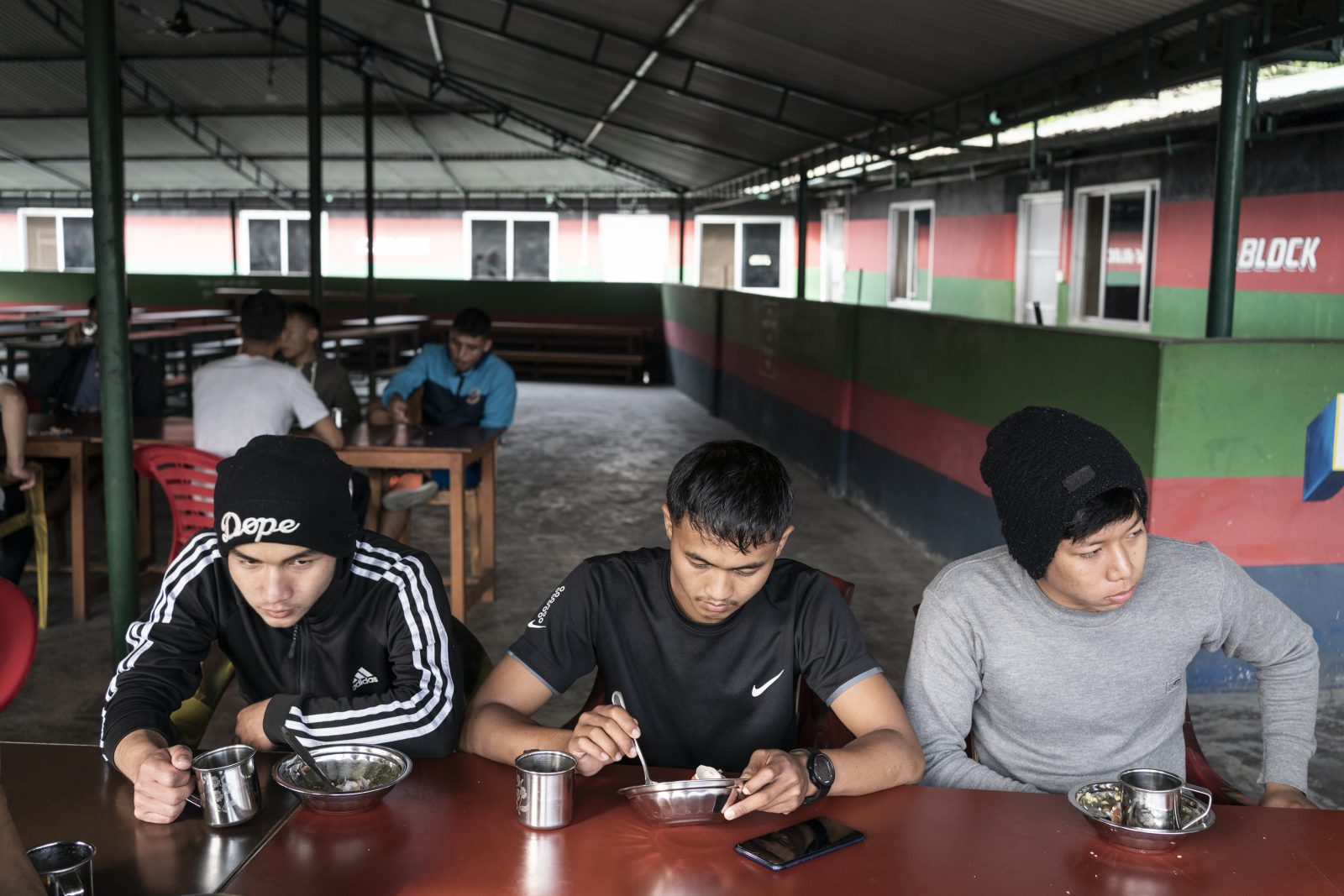
Breakfast is served after the first training session. The young men pay around $490 for half a year’s training.
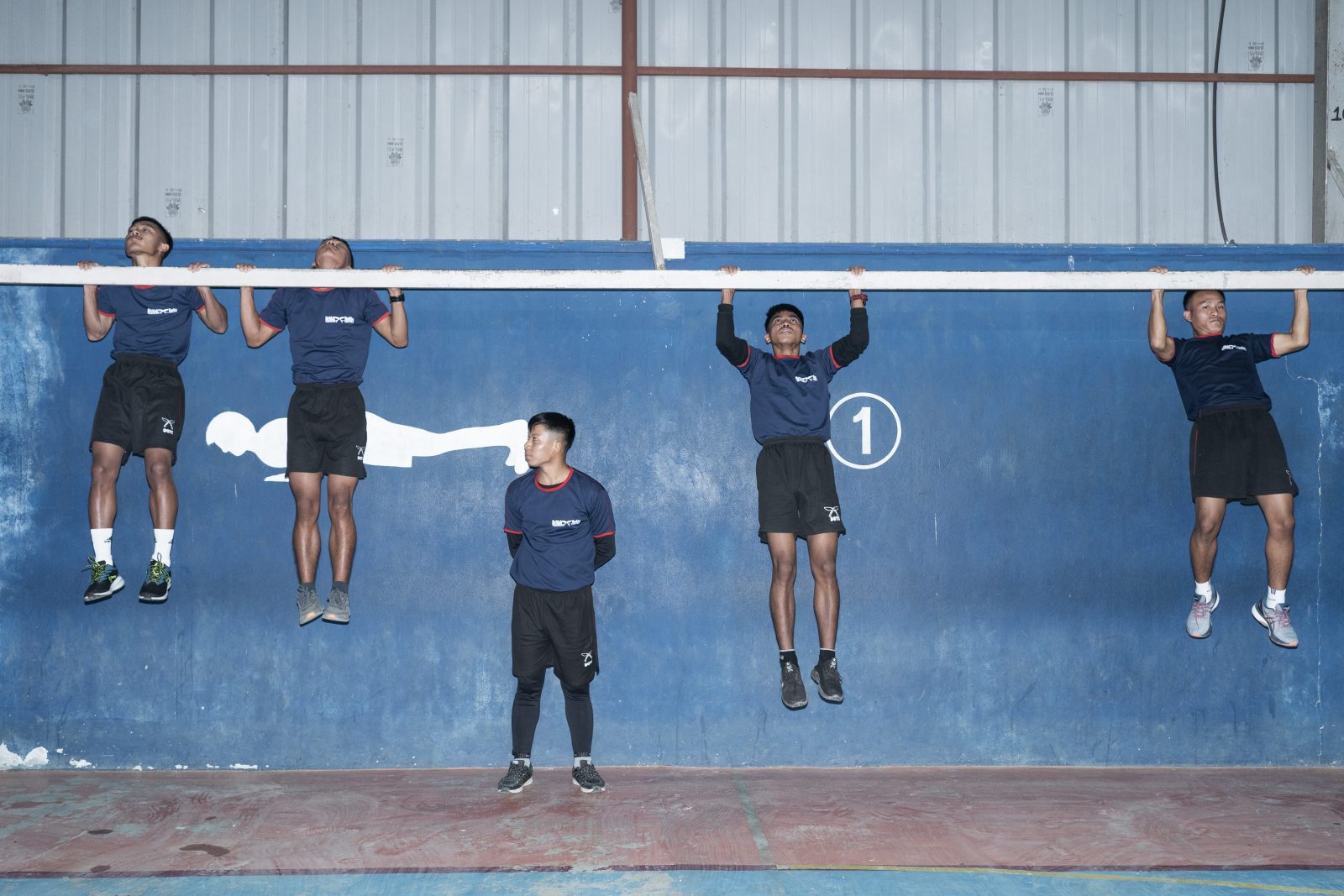
Pull-ups, over and over. The aspiring Gurkhas practice for the tests they’ll face on recruitment day.
Outsourced guard services
Even during wartime, the fighting is not constant. In Afghanistan, the violence came in waves. The Taliban mounted spring offensives against NATO troops, the fighting continued throughout the summer, and then in the fall, when the temperatures plunged, the active conflict subsided. There is, however, a constant need for guards during wartime. Armed guards stand guard outside every facility in Afghanistan used or occupied by international delegations. Hardly any embassies want their own soldiers on duty at these guard posts. It is a boring and dangerous task, and the guards are usually the first victims of attacks. Thus, embassies outsource the job to private security firms.
One of these companies is owned by Ian Douglas Gordon. He named the company after his initials, IDG. He currently employs more than 500 Nepali Gurkhas in Afghanistan. In Kathmandu, Gordon offers a rare glimpse into a secretive world where individual men command small private armies. And lest anyone think that this demimonde is inhabited only by tattooed Rambos, Gordon is a 72-year-old tie-wearing Briton who is never at a loss for a quote from The Art of War, the book written around 500 B.C. by Chinese general Sun Tzu.

Ian Douglas Gordon owns the security firm IDG. In effect, that means he commands a small private army.
Gordon’s Gurkhas have guarded United Nations buildings across Afghanistan. When Kabul fell, they stayed in place. The Taliban sent negotiators to the capital, and in the end, there was no violence, so the U.N. was allowed to stay in Kabul. One Gurkha says they would have been ready to fight.
IDG does not guard embassies in Afghanistan. “The exploitation of the Nepalese is taking place through some of these embassies,” Gordon says. If an embassy needs security guards, it solicits quotes from private security companies. Many of the bids that are put out require guards to work 12-hour shifts; IDG, however, offers a maximum of two four-hour shifts a day, and ideally even less.
“How many Europeans would stand there for 12 hours a day?” Gordon asks. In most cases, the cheapest bid wins the contract. Often, the guards wind up being Nepalese Gurkhas. Gordon says customers don’t care how long the Gurkhas are at their posts, even in inclement weather or snow. They’re just Asians, the thinking goes. “Let me be very clear about this: It’s racist. No one would treat a Westerner like that and get away with it. But it’s not written about in the West, and no one cares.”
Gordon’s life has followed a path that would be largely impossible today. His father ran a tea plantation in India and interrupted his business to serve in World War II. The family remained in India even after the country became independent. As a child, Gordon spoke Hindi and Nepali to the workers on the plantation. Before founding IDG, he was an officer in the British army and commanded a Gurkha regiment. He has extremely high praise for the Gurkhas, and views them as his brothers in arms. They are always respectful, he says, no matter what part of the world they serve in.
IDG currently places Gurkhas in Afghanistan who have previously served in the Indian army or the Singapore Police Force. Gordon personally recruits them in Kathmandu. All have already served for years but want to supplement their pensions. A Gurkha can earn around $1,000 per month in Afghanistan.
Among the ex-soldiers in Afghanistan, there is a clear hierarchy. The most expensive come from the English-speaking West: the United States, Canada, Australia, New Zealand and Great Britain. Then come the Eastern Europeans and the South Americans, who make about $3,000 a month. Then there are the Africans and the Nepalese. The cheapest are the Afghans. But hardly anyone trusts, a former commander of the guards for the Canadian embassy says, as some could have turned out to be Taliban sleeper agents.
Noah Coburn is an American professor who has written a book entitled Under Contract on the role of private security forces in Afghanistan. In an interview, he says the price pressure on private security firms has increased in recent years. “The more international troops left the country, the more difficult it became for the security people,” he says. As the date of withdrawal approached, embassies caught in the midst of the hopeless war began trying to economize.
Some security companies started working with human traffickers to meet the demand.
Around 1,500 Nepalese leave their home country every day. A 2010 survey, the most recent on the issue, indicated that one-quarter of Nepal’s residents were living below the poverty line. Job opportunities were scarce. After their army service, Gurkhas are often recruited by agents from firms with names like Worldnet Human Resources Manpower. But in fact, these are facades for empty promises. You can try to find these companies in Kathmandu’s winding alleyways. But empty promises are easy and fleeting, and when you visit the address on the business card, you are likely to find only a neighbour who will tell you the agency has long since moved on.
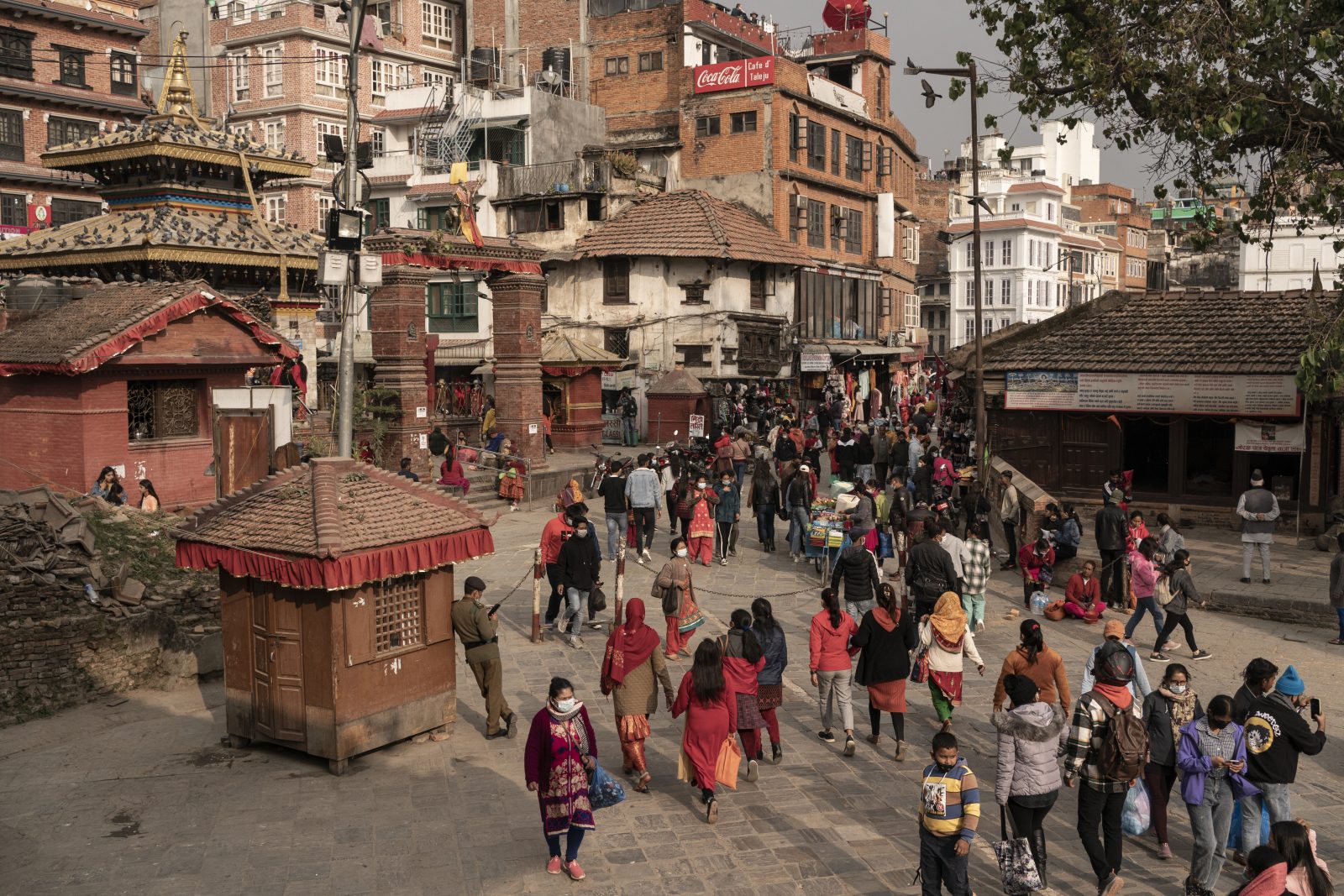
The famous Durbar Square in Kathmandu.
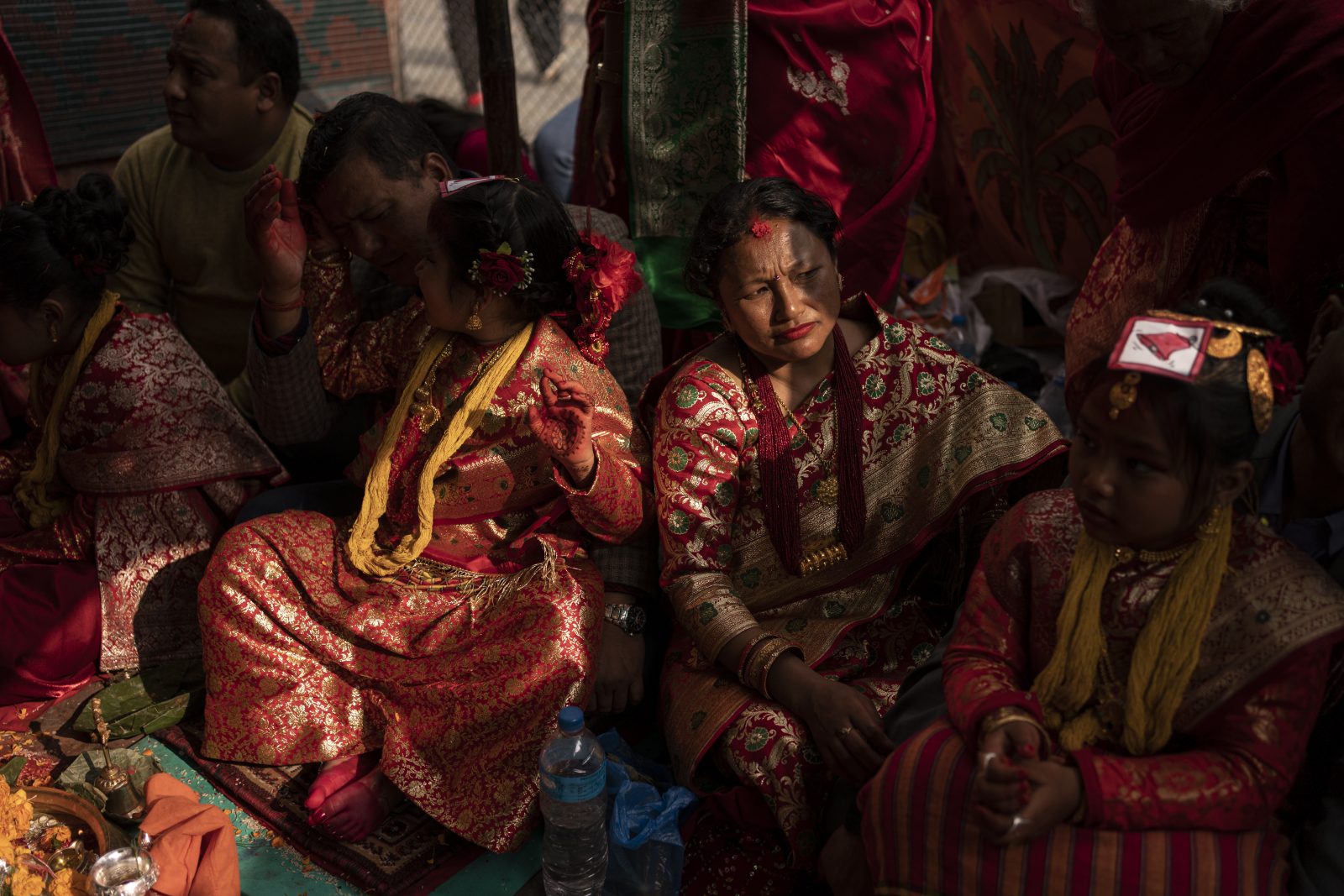
Nepalese people celebrate religious festivities in Durbar Square.
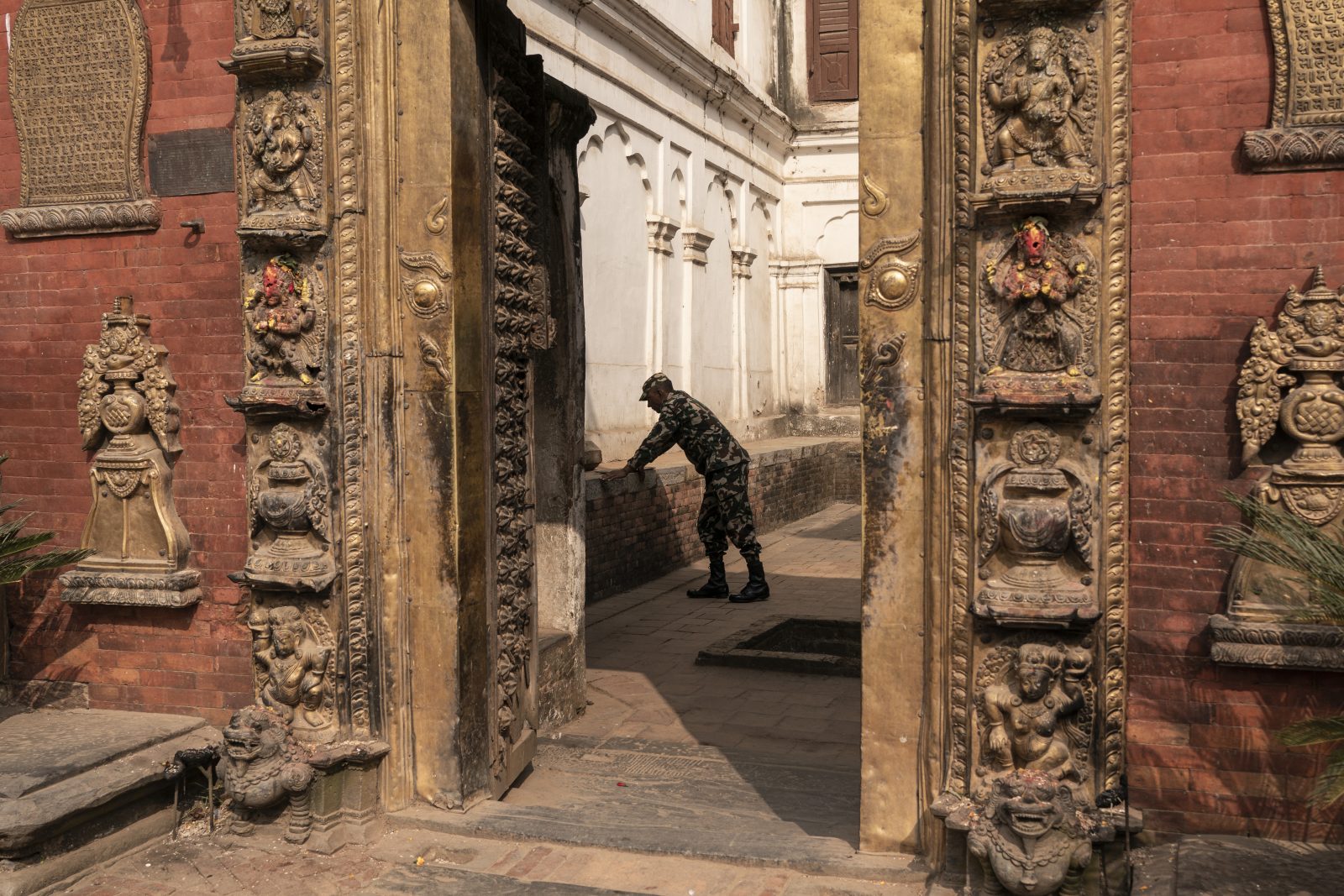
A soldier guards the Durbar Temple in Bhaktapur, in the Kathmandu Valley.
The agents smuggle the Gurkhas into Afghanistan. There, they are recruited by one of the security companies. For these firms, this is cheaper than going to Kathmandu on their own. They do not need staff on the ground, do not incur travel expenses and do not need visas. That helps lower prices. In recent years, agents have directed a steady stream of Gurkhas into Afghanistan. Those who aren’t immediately signed to a contract end up on waiting lists, or in some cases have simply been stranded in Kabul. “It’s a modern-day slave trade,” Gordon says, explaining that the Gurkhas work for free their first year with all their wages going to the agents.
On August 28, 2021, Gordon’s company rescued 34 stranded Gurkhas from a Sikh temple in Kabul. After they had gathered there, the Taliban presented them with an ultimatum, ordering them to leave the temple and the country. The Nepali Embassy in Delhi subsequently asked Gordon to take in the stranded people. Among the 34 were the 13 Nepalese who had been hiding together on the fifth floor of the Roshan Plaza hotel.
Reputation is more important than money
The 34 have never before spoken with a journalist about what happened to them. Most want to remain silent. When contacted, they hang up the phone, turn it off or hand it off to their wife. However, two of them, Dawa Gurung and Kumar Rana – not their real names – finally agree to talk. We meet in Pokhara as they do not want foreigners to visit them in their villages. We sit at the lake. The first tourists are back in Nepal, and a boy is selling balloons nearby. Rana says he has told only his immediate family what happened in Afghanistan. He is afraid of losing face if the neighbours find out that he came home empty-handed when he was supposed to bring home money. “My reputation is more important than the money,” he says. The Gurkhas are victims, and yet they are ashamed.
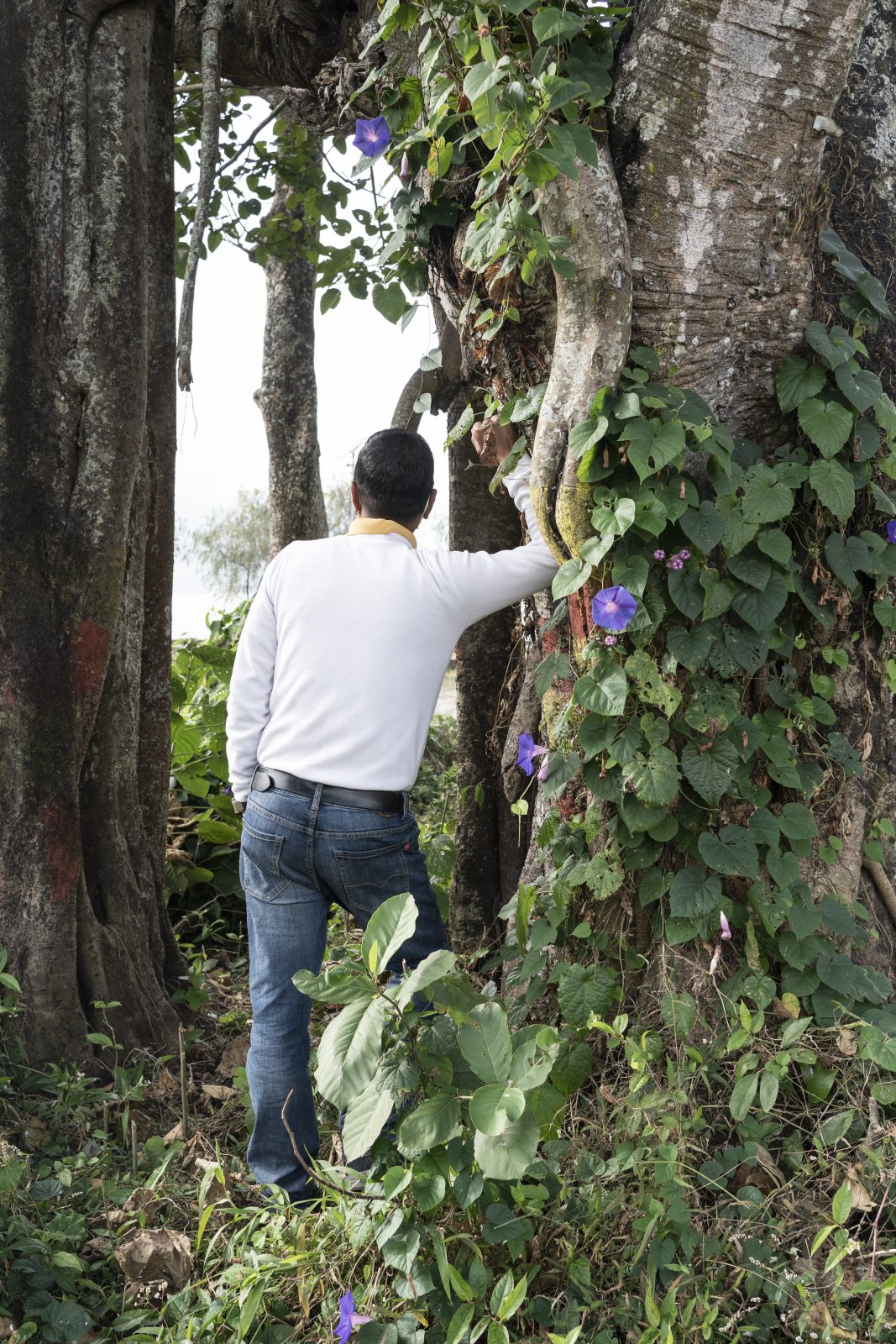
Dewa Gurung in Pokhora, Nepal November 2021.
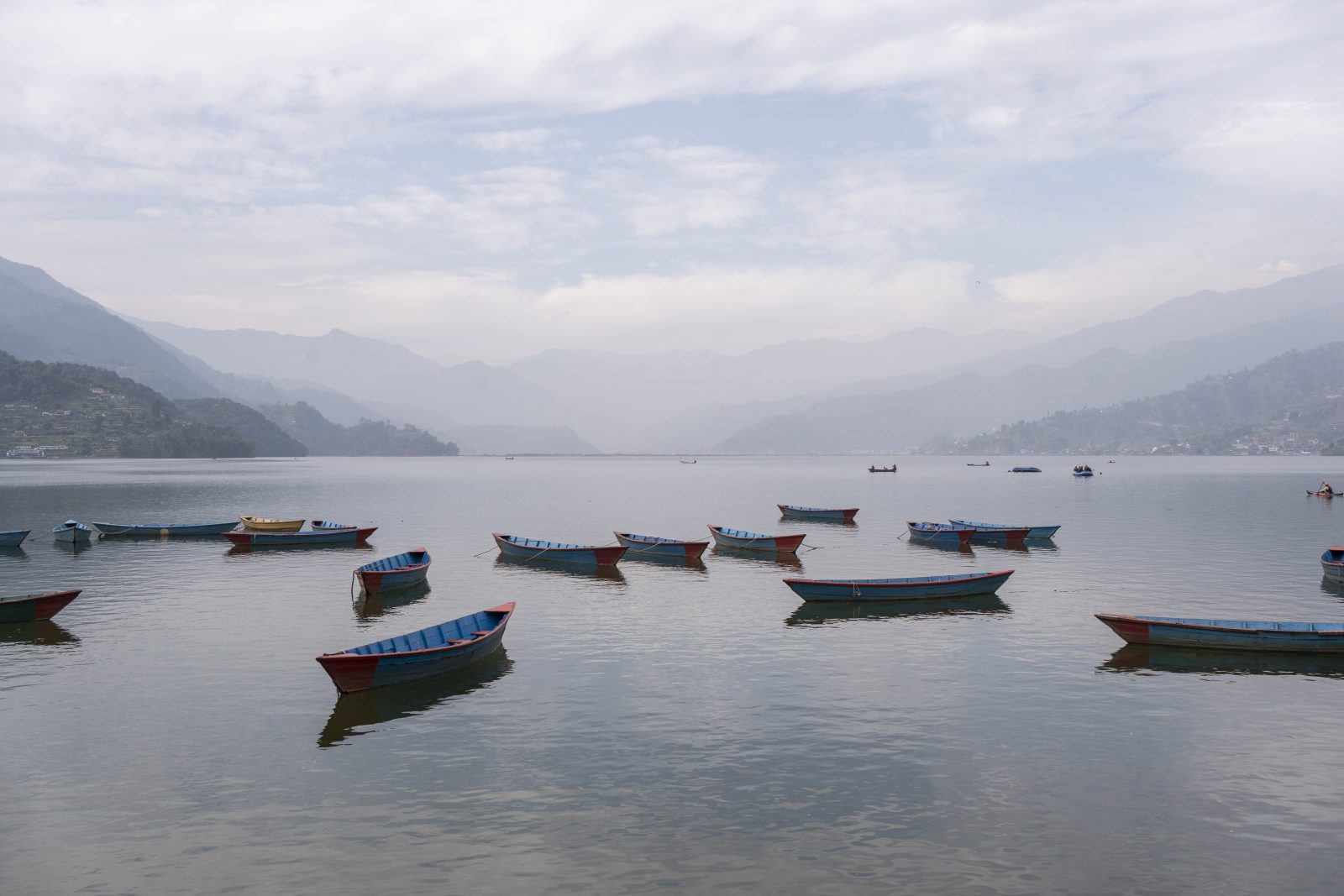
At the meeting at Pokhara’s Fewa Lake, Kumar Rana wishes to remain anonymous.
Gurung and Rana tell their stories separately. But the stories that connect them and the 32 others like them are nearly the same in every case. Their statements are, moreover, well-documented, as they were interviewed after seeking protection at the U.N. compound in Kabul.
It all started with an empty assurance: “I was promised a job in the Canadian, British or German embassy,” Gurung says. Gurung and Rana both served in the Indian army, each for more than 17 years. They are respectively in their late thirties and early forties. Each of them says an agent promised them a job. Both had an acquaintance who had previously been placed with the German Embassy through the same agent. The acquaintance confirms this, saying he too had paid money and then secured a job as a guard at the German Embassy in Kabul. Indeed, several of the 34 said in interviews that their agent had specifically promised that they would get a job at the German Embassy.
Gurung and Rana believed the agent and paid him. In March 2021, he sent them from Kathmandu to Dubai. There, they had to wait one month and pay $1,000 and then were given a tourist visa for Afghanistan. In April, they flew to Kabul. An Afghan agent picked them up at the airport and took them to the Roshan Plaza hotel and then took their passports.
The German Embassy in Kabul had outsourced its security services to Hart Security, a British company. Gurung identifies a Hart employee who interviewed them the day after they arrived. The interview lasted five minutes, Rana says. They were then told to wait until a job became available.
They had no passports. From March until August, they were trapped in the hotel. Because they were not working, the Afghan agent continued to demand money from their families back home, sometimes $800 at a time, sometimes as much as $1,500. Their wives had to borrow money. They were hostages now. In total, they both paid over $10,000 for the trip, scraped together by their relatives. Today, both of them are deep in debt.
Rana says only one of their group got a job as a security guard at UNHCR, the UN Refugee Agency. When Kabul fell, the embassies evacuated their staff and their security personnel. The Nepalese were left without jobs. Their agent blocked them on WhatsApp and Facebook. After they contacted the Nepalese embassy in Delhi, an evacuation attempt failed as crowds of other would-be escapees at Kabul’s airport prevented them from reaching the plane. In the end, they hid in the Sikh temple.
IDG chief Gordon says it is too easy to blame unscrupulous security firms. Or even the corrupt agents in Nepal, he adds. “The bad guys are the customers who don’t care about anything. Who look the other way, and don’t care how their staff is recruited.”
When contacted for a response, the German Federal Foreign Office writes that there is no evidence for the Gurkhas’ assertions but that they will be investigated. A representative confirms that the German Embassy in Kabul hired security personnel through the Hart company, noting that “the contract stipulated that personnel would have sufficient experience and qualifications.” In a separate statement, a Hart representative writes that the firm is surprised and shocked by the Gurkhas’ statements. This representative says the firm worked with a local agent in Kabul who took care of background checks and travel.
The 34 rescued Gurkhas stayed at the U.N. compound for two months. At one point, they participated in a volleyball tournament with the guards from IDG. “I keep thinking: What would have happened if I hadn’t been evacuated?” Gurung says. Gurung and Rana left Afghanistan without external wounds. Others were flown out on stretchers.
Barely surviving
Take, for instance, the 37-year-old former security guard Mahesh Thapa Magar (no relation to Ajit Fewali Magar, the trainee). At a meeting, he shows off a book that could have been the condolence book at his funeral, and indeed, he came very close to dying. On May 2, 2012, the Taliban attacked the Green Village compound, a secure housing complex for diplomats in Kabul. Mahesh Magar had just started his morning shift there, coffee in hand when the bomb exploded. The fragments slammed into him, lacerating his body. Gurkha guards defended the entrance gate against the Taliban for hours. When reinforcements arrived, an American soldier noticed that Mahesh Magar was still alive.
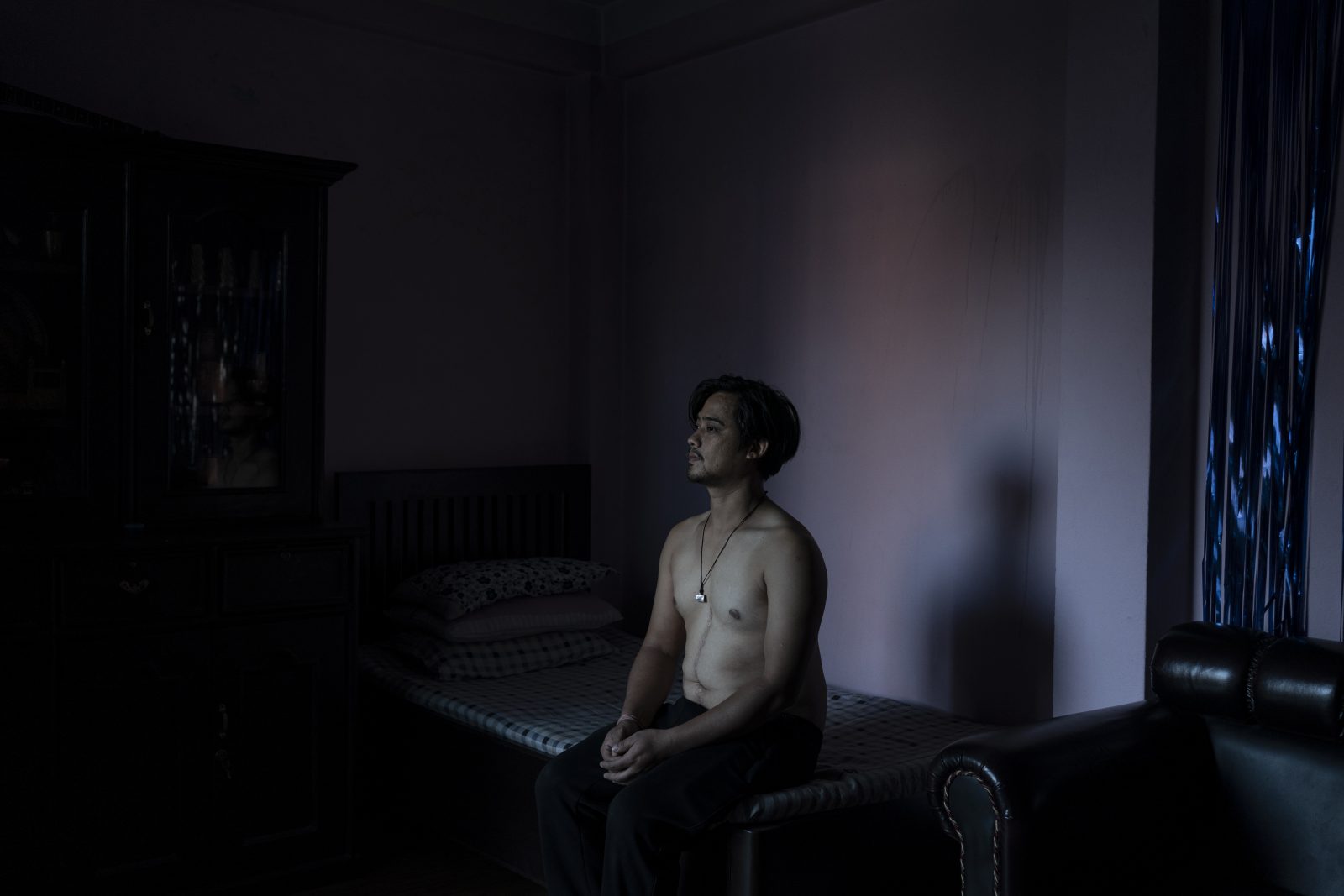
Mahesh Thapa Magar’s life was torn apart by a bomb in Kabul.
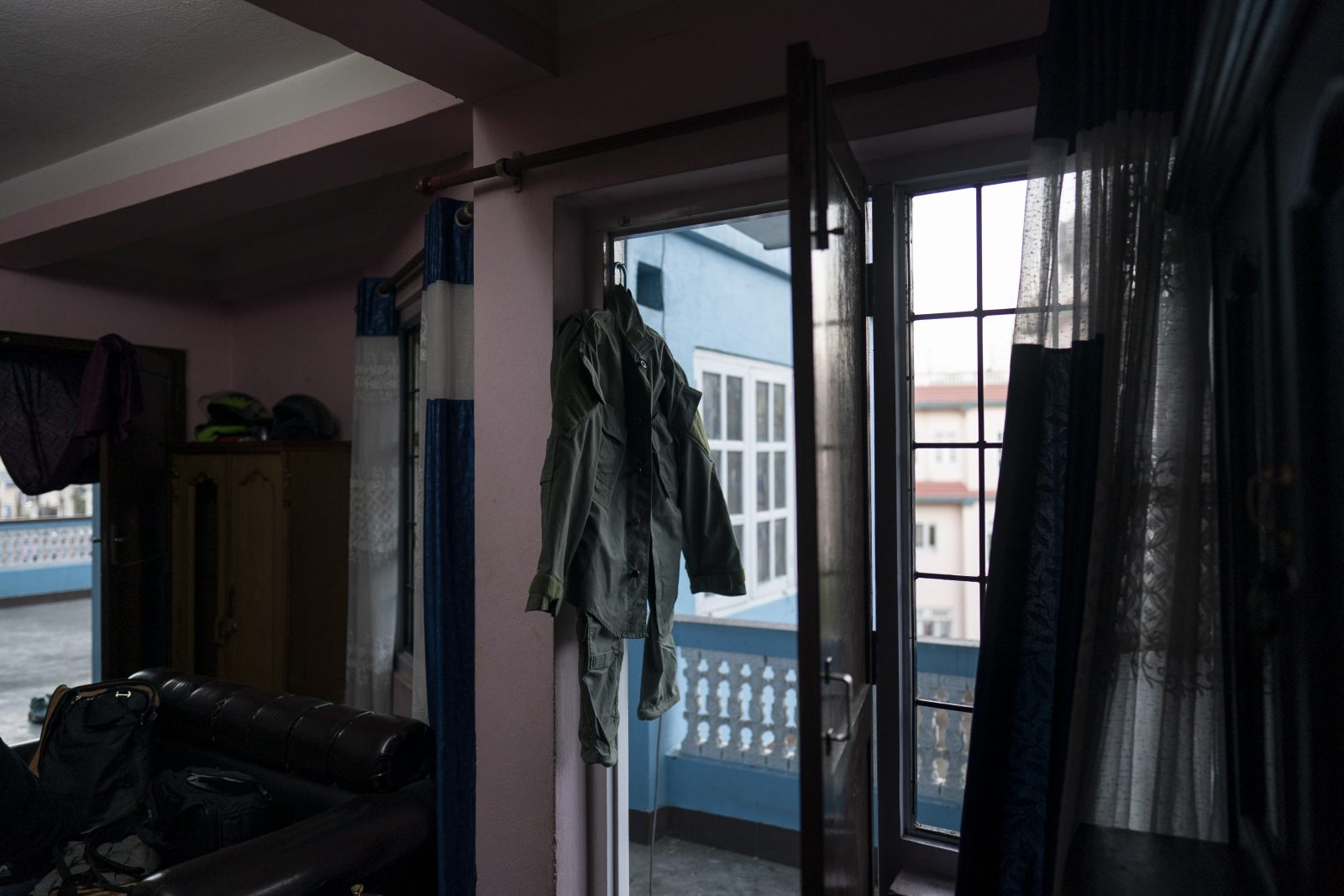
As a memento, Mahesh Magar keeps the uniform he wore as a guard in Afghanistan and hangs it in his Kathmandu apartment.
In the book, Green Village residents left messages of greeting. One wrote: “I am so sorry for the loss and injuries suffered by these brave men.: One of Mahesh Magar’s Gurkha colleagues died in the attack.
There are no figures for the number of dead or injured Gurkha guards in Afghanistan. Estimates have to be pieced together from reports. In 2012, 2013 and 2019, for example, attacks on the Green Village compound killed or wounded a total of nine Gurkhas. In 2011, four were killed in an attack on a U.N. building. In 2016, another 13 lost their lives when the Taliban attacked a bus full of Canadian embassy guards. The Nepalese victims are rarely mentioned in newspaper reports. Coburn, the American professor, estimates that at least 50 Nepalese guards ultimately perished in the country, but says he would not be surprised if the number was more than 200.
Mahesh Magar says he spent a year in the Nepalese army before an agent convinced him to enlist in Afghanistan: “I felt ready for the job.” A photo on the wall of his apartment depicts him before his departure, with his wife Tina Tamang and their young daughter. Tamang, 36, sits next to her husband today. She keeps running her hand through his hair, which at the time of the photo was black but now has grey streaks. When he cannot talk anymore, she takes over.
Mahesh Magar was wounded so badly that he could no longer work in Nepal, they say. In Afghanistan, he had been employed by Shield Security Service. The company paid for his medical treatment, and afterwards sent him payments of $1,000 a month. However, the payments stopped in 2015, three years after the attack. As Mahesh Magar had no direct contact with the company, he talked to his agent, who said the firm was having financial problems.
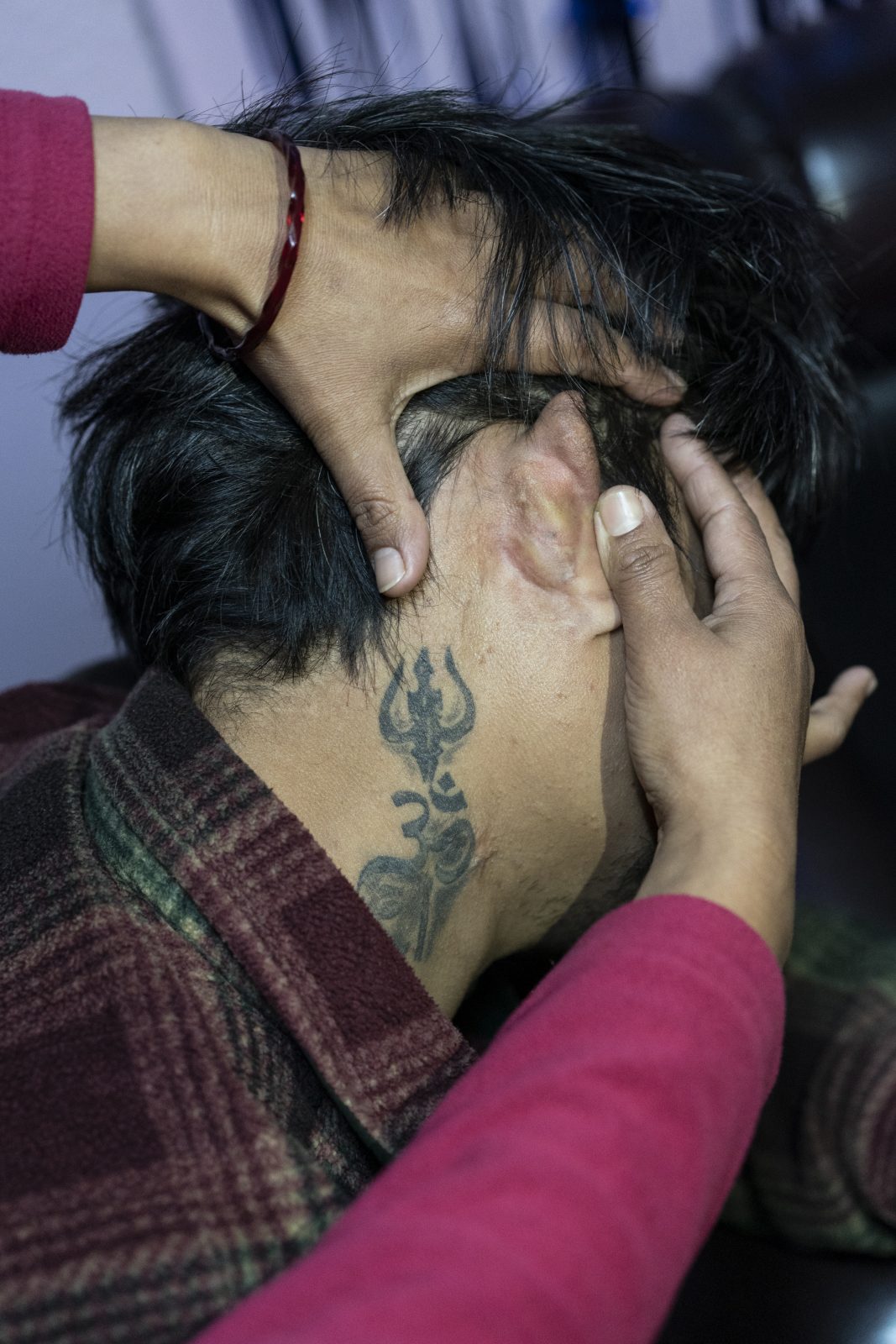
Mahesh Thapa Magar has the god Ganesh tattooed on his neck. In his cupboard, he keeps a kukri, the traditional knife of the Gurkhas.
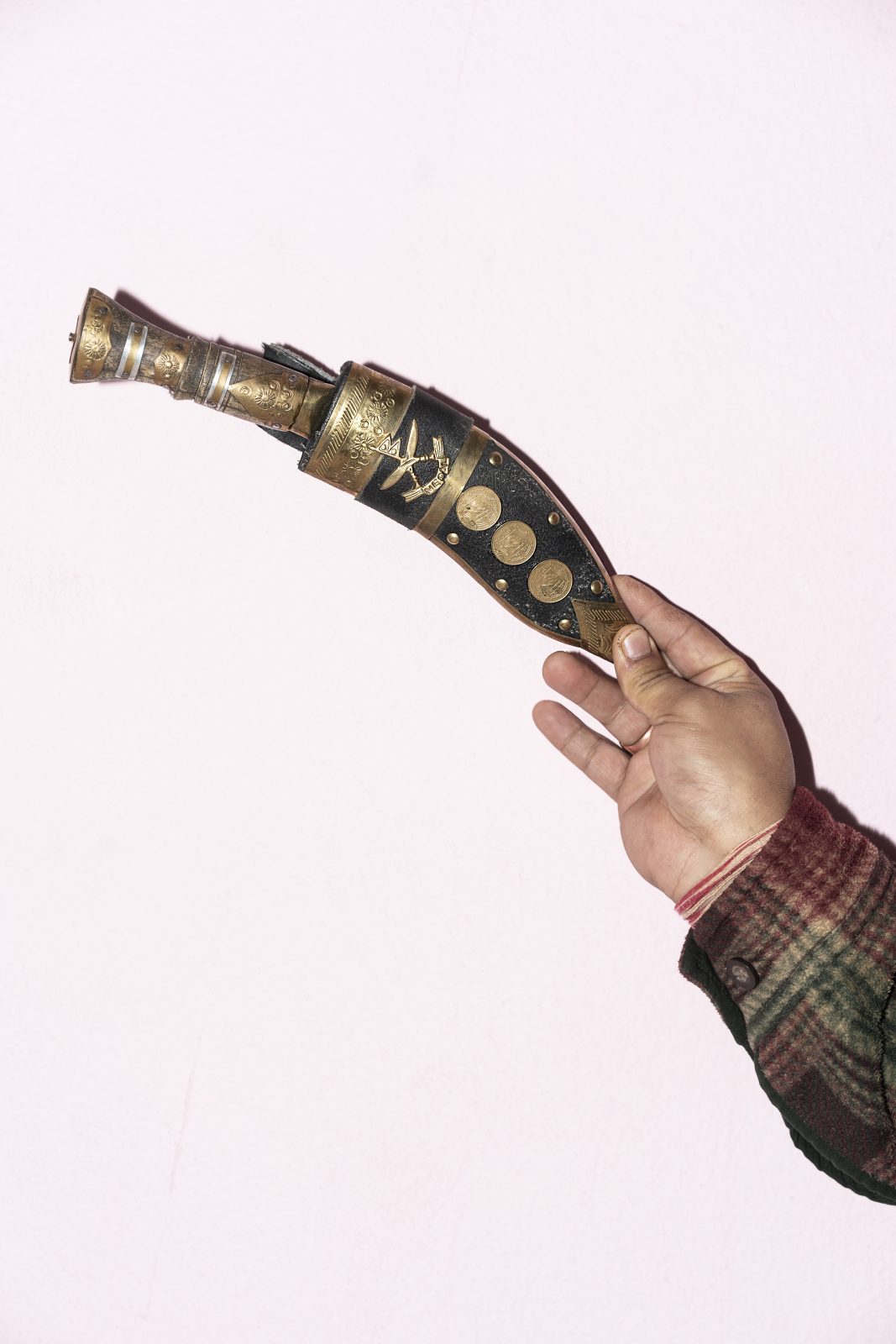
Mahesh Thapa Magar has the god Ganesh tattooed on his neck. In his cupboard, he keeps a kukri, the traditional knife of the Gurkhas.
In Afghanistan, companies like Shield wrap themselves in the Gurkhas’ reputation, marketing and selling the Nepalese to clients as elite soldiers even if, like Mahesh Magar, they have served for no more than a year. Among the Gurkhas, stories also circulate of cooks and taxi drivers who have become guards in Afghanistan through forged documents. If something goes wrong, these companies and agents simply slip away and the supposedly elite soldiers are left to fend for themselves. Mahesh Magar has hired a lawyer to try to identify someone from Shield so that they can be held accountable. This is proving to be a difficult undertaking.
Mahesh Magar says he has trouble sleeping. His wife runs a small cosmetics shop. Their daughter is now a teenager and would like to study but the family doesn’t have enough money. When Mahesh Magar can’t sleep, he climbs to the roof to think. But in the cold, the pain comes back. His wife says she is on antidepressants. She has not been able to talk to anyone. It’s as if the bomb sent a shock wave through time. Even 10 years later, they are still having difficulties getting back on their feet.
Gordon wants to sue
Ajit Fewali Magar, the aspiring Gurkha, ultimately failed to make it through the first round of recruitment to the Singapore Police Force. Gordon is considering joining the stranded Gurkhas in a lawsuit against Hart and other companies. The evacuation cost him $150,000 and the Nepalese government appears unlikely to reimburse him. Gurung and Rana want to go back to Afghanistan soon because they need money to pay off their debts. Both say they would not pay an agent again.
Nepal currently prohibits its nationals from travelling to Afghanistan. Nevertheless, back in Kabul the first Nepalese have already landed. Embassies have already requested bids for guard contracts.
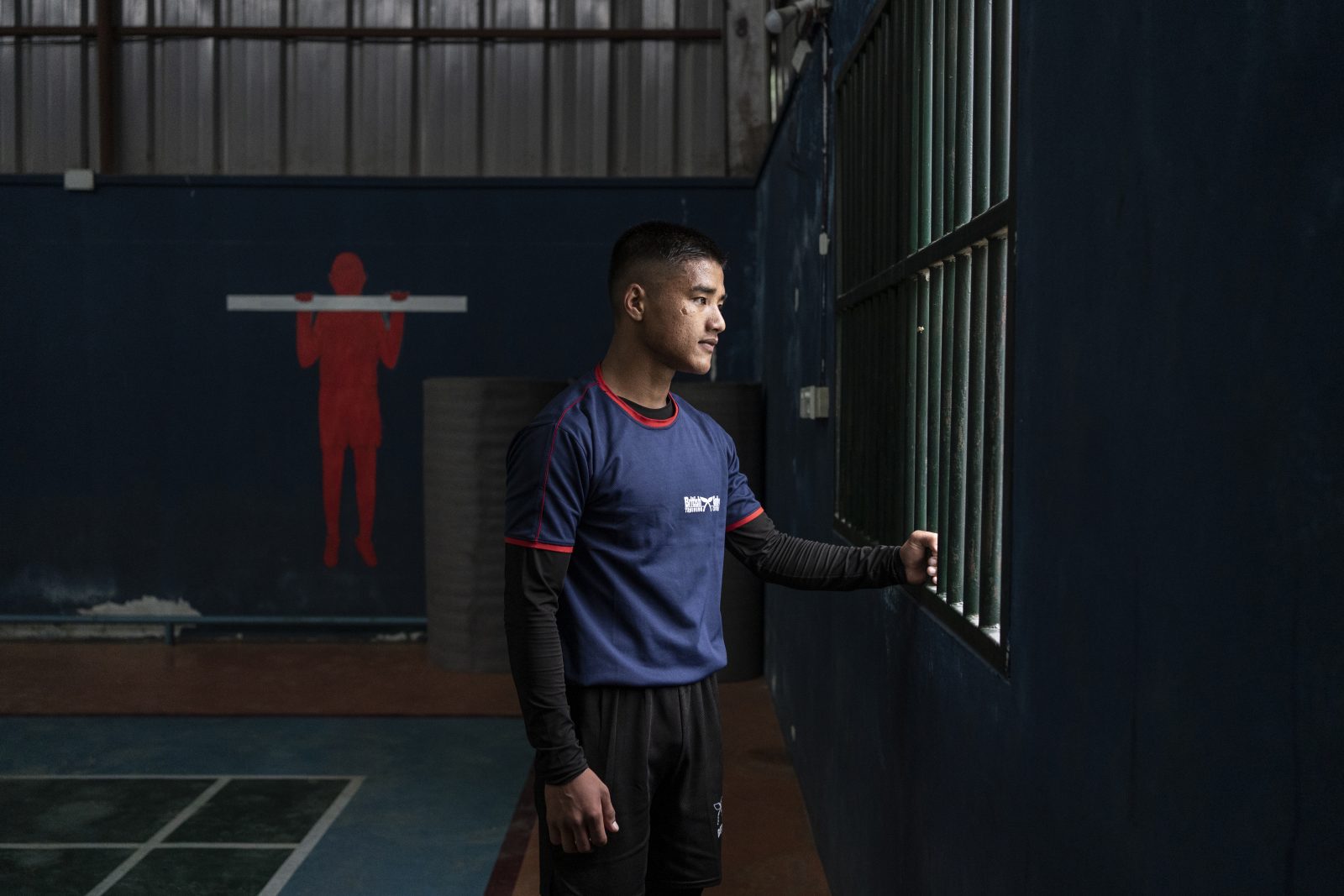
Ajit Fewali Magar didn’t make it to the Singapore Police Force. In the end, all the training wasn’t enough.
Back Channel Cooperation: How Frontex Helps Haul Migrants Back To Libyan Torture Camps
At sunrise, Alek Musa was still in good spirits. On the morning of June 25, 2020, he crowded onto an inflatable boat with 69 other people seeking asylum. Most of the refugees were Sudanese like him. They had left the Libyan coastal city of Garabulli the night before. Their destination: the island of Lampedusa in Italy. Musa wanted to escape the horrors of Libya, where migrants like him are captured, tortured and killed by militias.
The route across the central Mediterranean is one of the world’s most dangerous for migrants. Just last week, another 100 people died as they tried to reach Europe from Libya. Musa was confident, nonetheless. The sea was calm and there was plenty of fuel in the boat’s tank.
But then, between 9 a.m. and 10 a.m., Musa saw a small white plane in the sky. He shared his story by phone. There is much to suggest that the aircraft was a patrol of the European border protection agency Frontex. Flight data shows that a Frontex pilot had been circling the immediate vicinity of the boat at the time.
However, it appears that Frontex officials didn’t instruct any of the nearby cargo ships to help the refugees, nor did the sea rescue coordination centres. Instead, hours later, Musa spotted the Ras Al Jadar on the horizon, a Libyan coast guard vessel.
With none of them wanting to be hauled back to Libya, the migrants panicked. “We tried to leave as quickly as possible,” says Musa, who won’t give his real name out of fear of retaliation.
Musa claims the Libyans rammed the dinghy with their ship. And that four men had gone overboard. Images from an aircraft belonging to the private rescue organization Sea-Watch show people fighting for their lives in the water. At least two refugees are believed to have died in the operation. All the others were taken back to Libya.
Frontex Has Turned the Libyans into Europe’s Interceptors
The June 25 incident is emblematic of the Europeans’ policy in the Mediterranean: The EU member states ceased sea rescue operations entirely in 2019. Instead, they are harnessing the Libyan coast guard to keep people seeking protection out of Europe.
The European Court of Human Rights ruled back in 2012 that refugees may not be brought back to Libya because they are threatened with torture and death there. But that’s exactly what Libyan border guards are doing. With the help of the Europeans, they are intercepting refugees and hauling them back to Libya. According to an internal EU document, 11,891 were intercepted and taken back ashore last year.
The EU provides financing for the Libyan coast guard and has trained its members. To this day, though, it claims not to control its operations. “Frontex has never directly cooperated with the Libyan coast guard,” Fabrice Leggeri, the head of the border agency, told the European Parliament in March. He claimed that the Libyans alone were responsible for the controversial interceptions. Is that really the truth, though?
Together with the media organization “Lighthouse Reports,” German public broadcaster ARD’s investigative magazine “Monitor” and the French daily “Libération,” DER SPIEGEL has investigated incidents in the central Mediterranean Sea over a period of several months. The reporters collected position data from Frontex aircraft and cross-checked it with ship data and information from migrants and civilian rescue organizations. They examined confidential documents and spoke to survivors as well as nearly a dozen Libyan officers and Frontex staff.
This research has exposed for the first time the extent of the cooperation between Frontex and the Libyan coast guard. Europe’s border protection agency plays an active role in the interceptions conducted by the Libyans. The reporting showed that Frontex flew over migrant boats on at least 20 occasions since January 2020 before the Libyan coast guard hauled them back. At times, the Libyans drove deep in the Maltese Search and Rescue Zone, an area over which the Europeans have jurisdiction.
Some 91 refugees died in the interceptions or are considered missing – in part because the system the Europeans have established causes significant delays in the interceptions. In most cases, merchant ships or even those of aid organizations were in the vicinity. They would have reached the migrant boats more quickly, but they apparently weren’t alerted. Civilian sea rescue organizations have complained for years that they are hardly ever provided with alerts from Frontex.
The revelations present a problem for Frontex head Leggeri. He is already having to answer for his agency’s involvement in the illegal repatriation of migrants in the Aegean Sea that are referred to as pushbacks. Now it appears that Frontex is also bending the law in operations in the central Mediterranean.
An operation in March cast light on how the Libyans operate on the high seas. The captain of the Libyan vessel Fezzan, a coast guard officer, agreed to allow a reporter with DER SPIEGEL to conduct a ride-along on the ship. During the trip, he held a crumpled piece of paper with the coordinates of the boats he was to intercept. He didn’t have any internet access on the ship – indeed, the private sea rescuers are better equipped.
The morning of the trip, the crew of the Fezzan had already pulled around 200 migrants from the water. The Libyans decided to leave an unpowered wooden boat with another 200 people at sea because the Fezzan was already too full. The rescued people huddled on deck, their clothes soaked and their eyes filled with fear. “Stay seated!” the Libyan officers yelled.
Sheik Omar, a 16-year-old boy from Gambia squatted at the bow. He explained how, after the death of his father, he struggled as a worker in Libya. Then he just wanted to get away from there. He had already attempted to reach Europe five times. “I’m afraid,” he said. “I don’t know where they’re taking me. It probably won’t be a good place.”
The conditions in the Libyan detention camps are catastrophic. Some are officially under the control of the authorities, but various militias are actually calling the shots. Migrants are a good business for the groups, and refugees from sub-Saharan countries, especially, are imprisoned and extorted by the thousands.
Mohammad Salim was aware of what awaited him in jail. He’s originally from Somalia and didn’t want to give his real name. Last June, he and around 90 other migrants tried to flee Libya by boat, but a Frontex aeroplane did a flyover above them early in the morning. Several merchant ships that could have taken them to Europe passed by. But then the Libyan coast guard arrived several hours later.
Once back on land, the Somali was sent to the Abu Issa detention centre, which is controlled by a notorious militia. “There was hardly anything to eat,” Salim reported by phone. On good days, he ate 18 pieces of macaroni pasta. On other days, he sucked on toothpaste. The women had been forced by the guards to strip naked. Salim was only able to buy his freedom a month later when his family had paid $1,200.
The EU is well aware of the conditions in the Libyan refugee prisons. German diplomats reported “concentration camp-like conditions” in 2017. A February report from the EU’s External Action described widespread “sexual violence, abduction for ransom, forced labour and unlawful killings.” The report states that the perpetrators include “government officials, members of armed groups, smugglers, traffickers and members of criminal gangs.”
Supplies for the business are provided by the Libyan coast guard, which is itself partly made up of militiamen.
In response to a request for comment from DER SPIEGEL, Frontex asserted that it is the agency’s duty to inform all internationally recognized sea rescue coordination centres in the region about refugee boats, including the Joint Rescue Coordination Center (JRCC). The sea rescue coordination centre reports to the Libyan Defense Ministry and is financed by the EU.
According to official documents, the JRCC is located at the Tripoli airport. But members of the Libyan coast guard claim that the control centre is only a small room at the Abu Sitta military base in Tripoli, with just two computers. They claim that it is actually officers with the Libyan coast guard who are on duty there. That the men there have no ability to monitor their stretch of coastline, meaning they would virtually be flying blind without the EU’s aerial surveillance. In the event of a shipping accident, they almost only notify their own colleagues, even though they currently only have two ships at their disposal. Even when their ships are closer, there are no efforts to inform NGOs or private shipping companies. Massoud Abdalsamad, the head of the JRCC and the commander of the coast guard even admits that “The JRCC and the coast guard are one and the same, there is no difference.”
WhatsApp Messages to the Coast Guard
As such, experts are convinced that even the mere transfer of coordinates by Frontex to the JRCC is in violation of European law. “Frontex officials know that the Libyan coast guard is hauling refugees back to Libya and that people there face torture and inhumane treatment,” says Nora Markard, professor for international public law and international human rights at the University of Münster.
In fact, it appears that Frontex employees are going one step further and sending the coordinates of the refugee boats directly to Libyan officers via WhatsApp. That claim has been made independently by three different members of the Libyan coast guard. DER SPIEGEL is in possession of screenshots indicating that the coast guard is regularly informed – and directly. One captain was sent a photo of a refugee boat taken by a Frontex plane. “This form of direct contact is a clear violation of European law,” says legal expert Markard.
When confronted, Frontex no longer explicitly denied direct contact with the Libyan coast guard. The agency says it contacts everyone involved in emergency operations in order to save lives. And that form of emergency communication cannot be considered formal contact, a spokesman said.
But officials at Frontex in Warsaw are conscious of the fact that their main objective is to help keep refugees from reaching Europe’s shores. They often watch on their screens in the situation centre how boats capsize in the Mediterranean. It has already proven to be too much for some – they suffer from sleep disorders and psychological problems.

